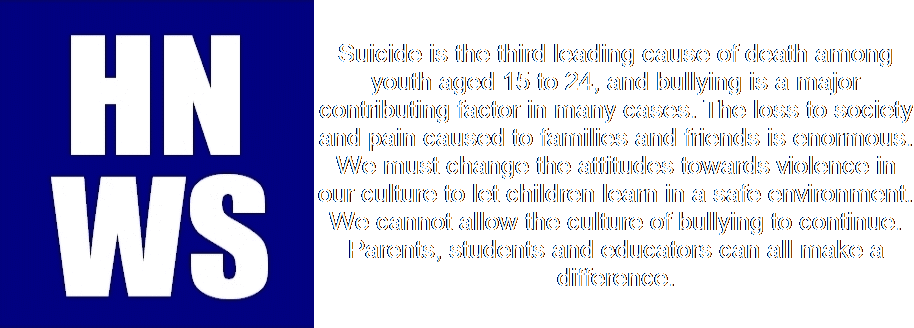One of the most profoundly
debilitating effects of losing a child to suicide are the feelings of
guilt that parents are left with. No matter how many times we hear
people tell us "It's not your fault", the feeling that we
could have, would have, or should have done something differently is
almost unavoidable. It eats into a parent's soul, an unrelenting
source of pain. My own feelings of guilt have tormented me for years.
The problem is that, unlike many forms of guilt which can be
alleviated or even eliminated completely by making amends or fixing
the problem that caused the feeling, death cannot be undone.
The problem has become not so much eliminating
the guilt as learning to live with it. For me, the worst
feelings arise if I think about how alone and scared my boy must have
felt when he died. Dad's are supposed to be there to help if their
child feels that way, aren't they? Even strangers will usually try to
help if they know a child is scared or in danger, it's human nature
to do so. That's one reason why I write this blog - to do what I can
to help other parents and kids deal with bullying, and the helpless
fear that killed my son. The guilt remains, but just knowing that I
may have helped a kid stop the torment helps me as well.
"Part of every misery is, so to speak, the misery's shadow or reflection: the fact that you don't merely suffer but have to keep on thinking about the fact that you suffer. I not only live each endless day in grief, but live each day thinking about living each day in grief." ~ C. S. Lewis
The battle to keep my emotions in
check has been long, and continues every day, but it hasn't always
been the same battle. My first emotion, after the initial traumatic
grief faded, was anger. Terrifying (now that I look back at it, at
least), overwhelming anger. Anger at the kids who tortured and
humiliated Steven, anger at the school and with myself for failing to
protect my boy, and anger at the world in general seemed to be all I
could think about. I was not a pleasant person to be around, but what
most people, including me, didn't realise was that the anger was
hiding a deep and constant guilt. As long as I had someone or
something to blame I didn't have to think about the guilt, or succumb
to the depression it would later cause.
Eventually, I realized that anger and
giving in to feelings of violence wouldn't help, and were only
keeping me from moving on with life. That doesn't mean I was done
fighting, but rather that I had a new enemy to contend with - my
guilt. I couldn't simply walk away from it, or just decide to drop
it, that's not possible for me. Life became a constant battle between
my will to carry on, and the scheming demon waiting on my shoulder,
whispering defeatist ideas in my ear. Clearly not a viable situation
for my mental health. As my old friend Gus recently wrote, "When
the weight of life pulls at you, it is easier to stand aside and wait
for the calm to return. I believe that you must stand your ground and
fight because in the end there's an undercurrent waiting that is
threatening to knock you down again." My guilt is very much
like that, and for a while at least it had the better of me,
threatening to wear me down. Every time I let my guard down, there it
was, prepared to send me into another round of debilitating
depression.
So I continue to fight in the hope
that I can eventually gain enough insight into my own feelings to
learn to live with them; enough perspective to finally forgive myself
for my self imposed punishment. Unfortunately, I'm currently working
through a rather severe relapse and have had to take a break from
much of my life, in order to work with a therapist and my doctor to
sort it out. One positive result of this has been that it has given
me a chance to write more, and writing is good therapy for me. I've
tried many forms of self help and have yet to find one that really
works. I tried hypnosis (I'm immune to the process, apparently!),
cognitive behaviour therapy (too much like homework, and I'm prone to
argument, even with myself), meditation (fell asleep...) and several
others. I haven't given up, I'm convinced that somewhere in my brain
is a mental pathway to enlightenment, and I'll find it. There are
also ways to work things out that don't have a name; more personal
ways to change that can sometimes come from surprising places. Usually
the trick is to recognize them when I find them. In fact, in a way,
you're helping me a little bit right now by reading this, so thanks
for that.
